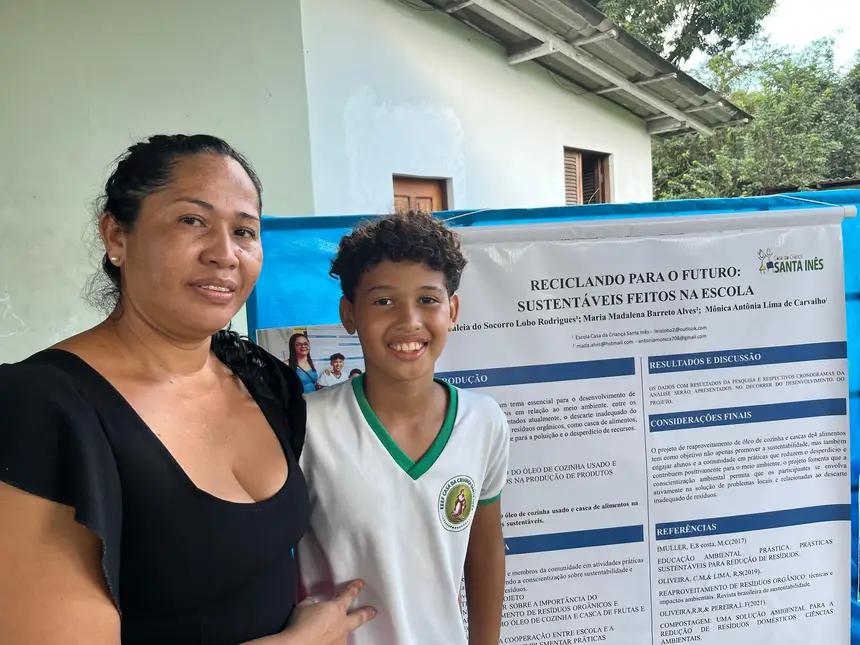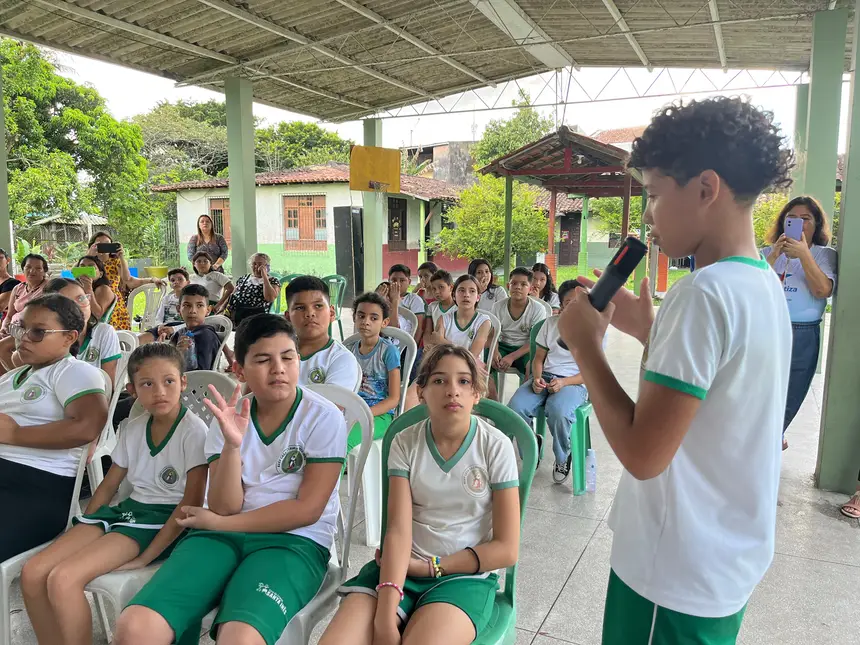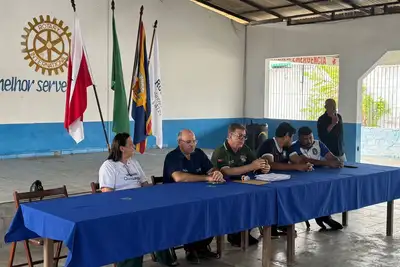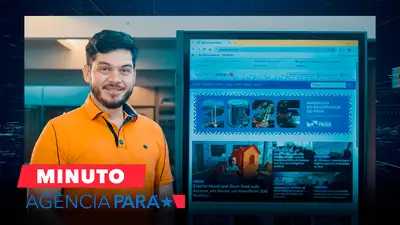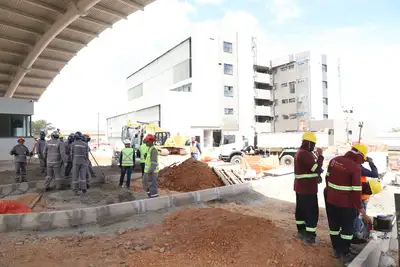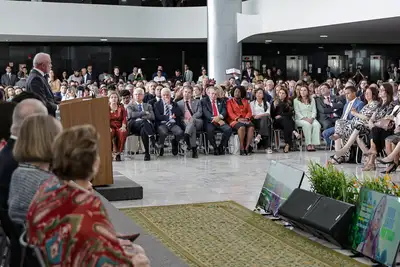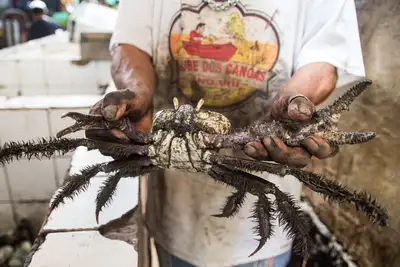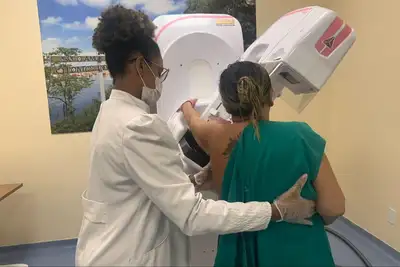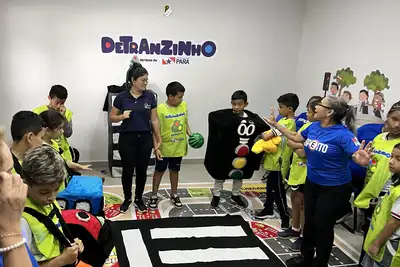Environmental Education in Practice: State Students Transform Used Cooking Oil into Eco-Friendly Soap
Through the multidisciplinary project, students from the State School Casa da Criança Santa Inês, in Belém, learned about sustainability using Portuguese Language and Mathematics.
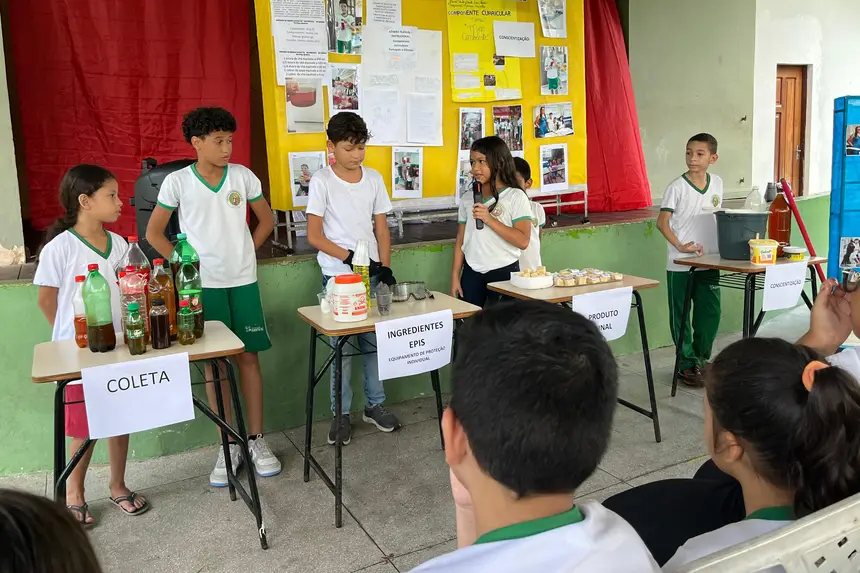
In an innovative project developed within the Environmental Education curriculum component, students from the State School of Elementary Education Casa da Criança Santa Inês, in the Souza neighborhood of Belém, are learning in practice how to transform used cooking oil into eco-friendly soap. The initiative reinforces the essential and impactful role of environmental preservation and ecological awareness, in addition to encouraging the reuse of materials such as plastic and oil.
“The idea arose when we asked ourselves where the oil used in frying was thrown away, and after that, we found out that the oil was discarded improperly. I conducted a survey in the classroom and asked the students what their mothers did with that used oil at home, and they replied that they threw it in the sink, in ditches, or in backyards. So, we conducted research to find out what problems this attitude causes for the environment, and then we thought of the proposal to create an eco-friendly soap to help the mothers, both economically and to save our environment,” explained Mônica Carvalho, Environmental Education teacher at the school and project advisor.
Working in a multidisciplinary way with 5th-grade students, the Environmental Education curriculum project involved the subjects of Portuguese Language and Mathematics, which further encouraged the participation of the school community. “After we made the recipes, we saw that the textual genre that the Portuguese teacher was working on was recipes, so we discussed the proposal to work on this homemade soap recipe, and she started working with the students on the recipe and explained to them how they should do it, how they should follow a recipe. In Mathematics, the teacher used the lessons on measurements to work on the theme with them and thus we made our soap,” said teacher Mônica Carvalho.
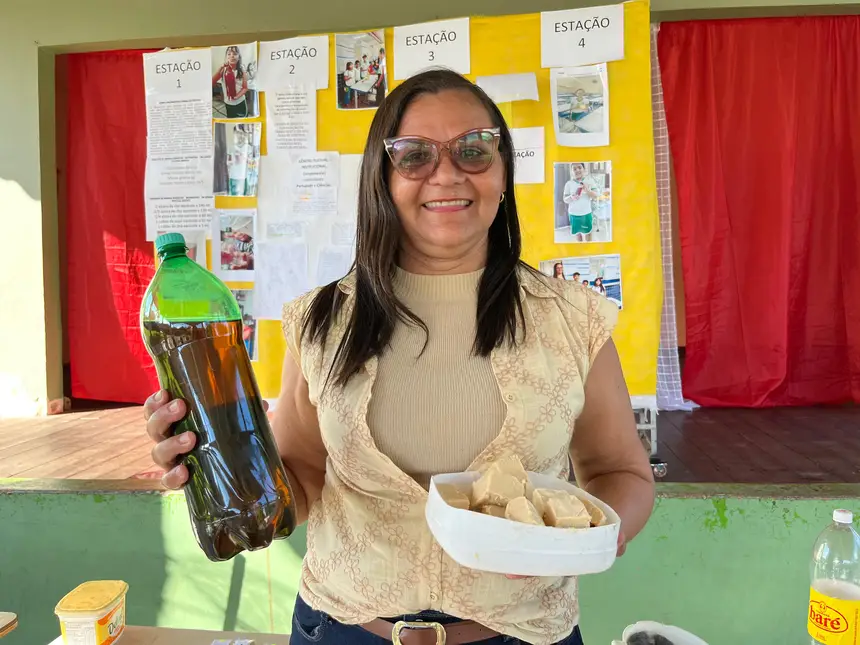
Student Jonathan Silva shared his experience enthusiastically. “I liked the experience because it was and is very good for the environment, in addition to being very creative since you can reuse the oil and make various things. It was a lot of experience, including all my friends learned about environmental education, Portuguese, and mathematics in this project. At home, now I take a PET bottle, pour the used oil inside to reuse and make soap and various things. Now I have environmental awareness; before I threw the oil away because I didn’t know, today I pour it from my PET bottle and save it to reuse,” he highlighted.
For the student's mother, Diana Silva, the initiative was an opportunity that made a difference in her son's daily life. “When the opportunity arose at school and he [the son] was chosen to present the project, the first thing I did was encourage him because I see his performance, and this is a source of pride for me and even more for him for learning, and this is a learning experience for life. Here they learned and are learning not to contaminate the soil, to take care of nature,” she commented.
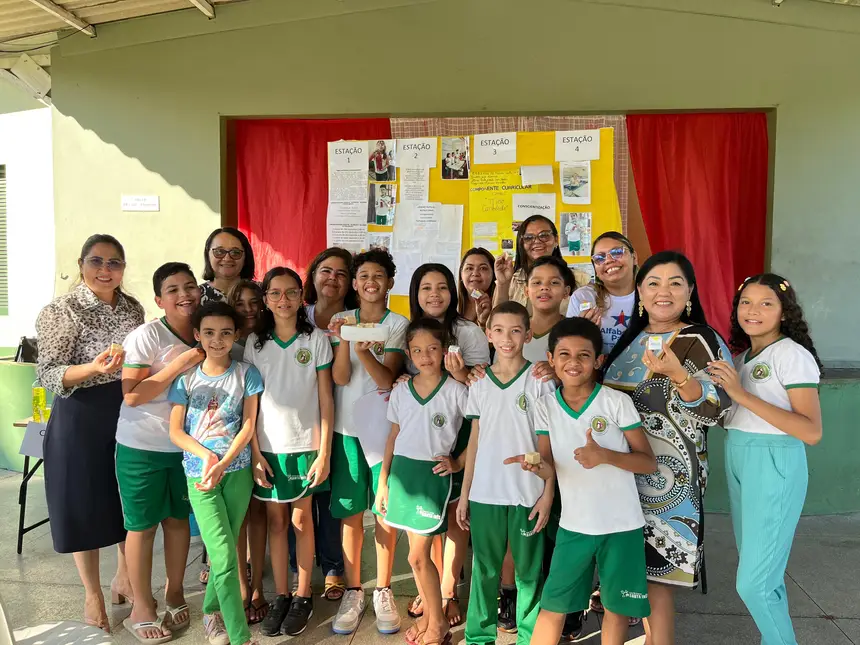
Environmental Education - The State Department of Education (Seduc) has been offering the Environmental Education component in all stages of education, mandatory in state schools, since the first semester of 2024. This component can be adopted by municipalities, based on the Environmental Education, Sustainability, and Climate Policy.
Seduc emphasizes that the environmental content makes Pará a pioneer in ensuring a mandatory sustainability curriculum component, which encourages the participation and engagement of students in discussions about fundamental agendas in the context of Pará, as the host of the United Nations Conference on Climate Change (COP 30) in 2025.


